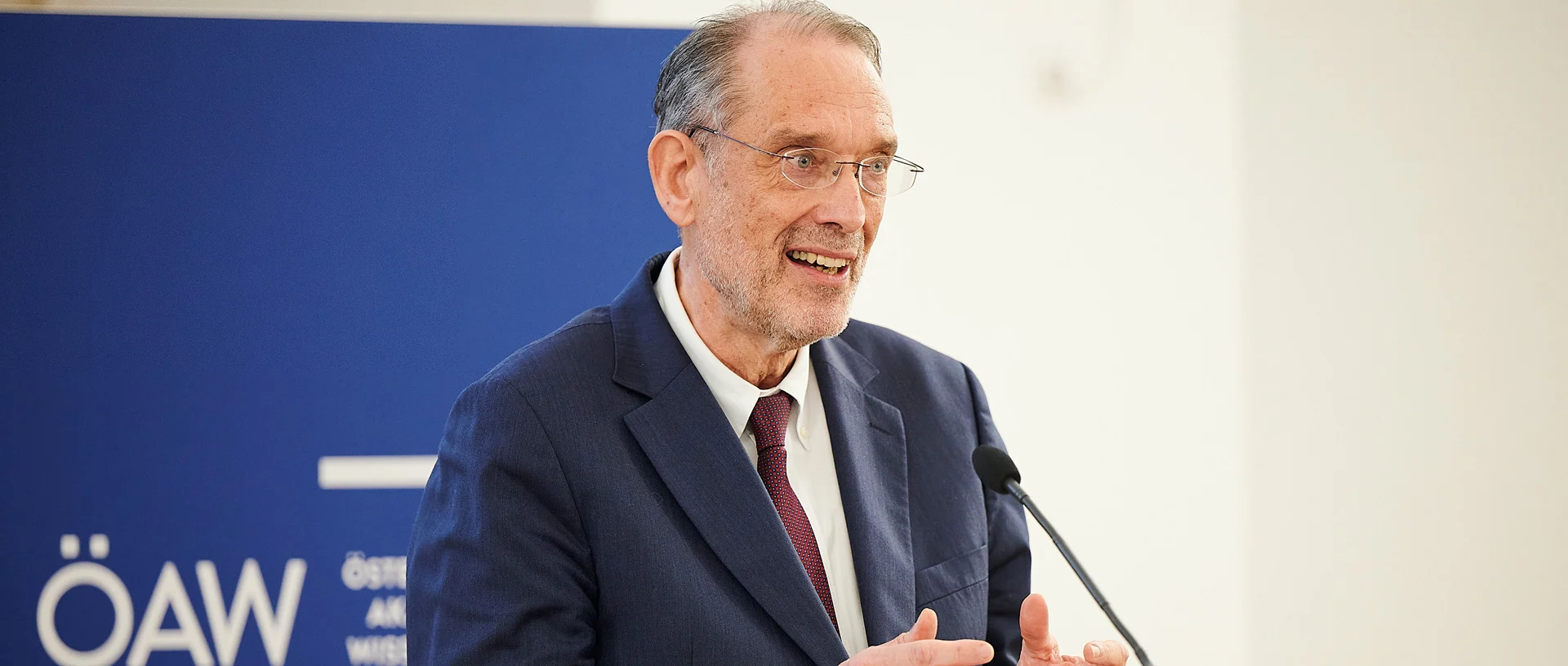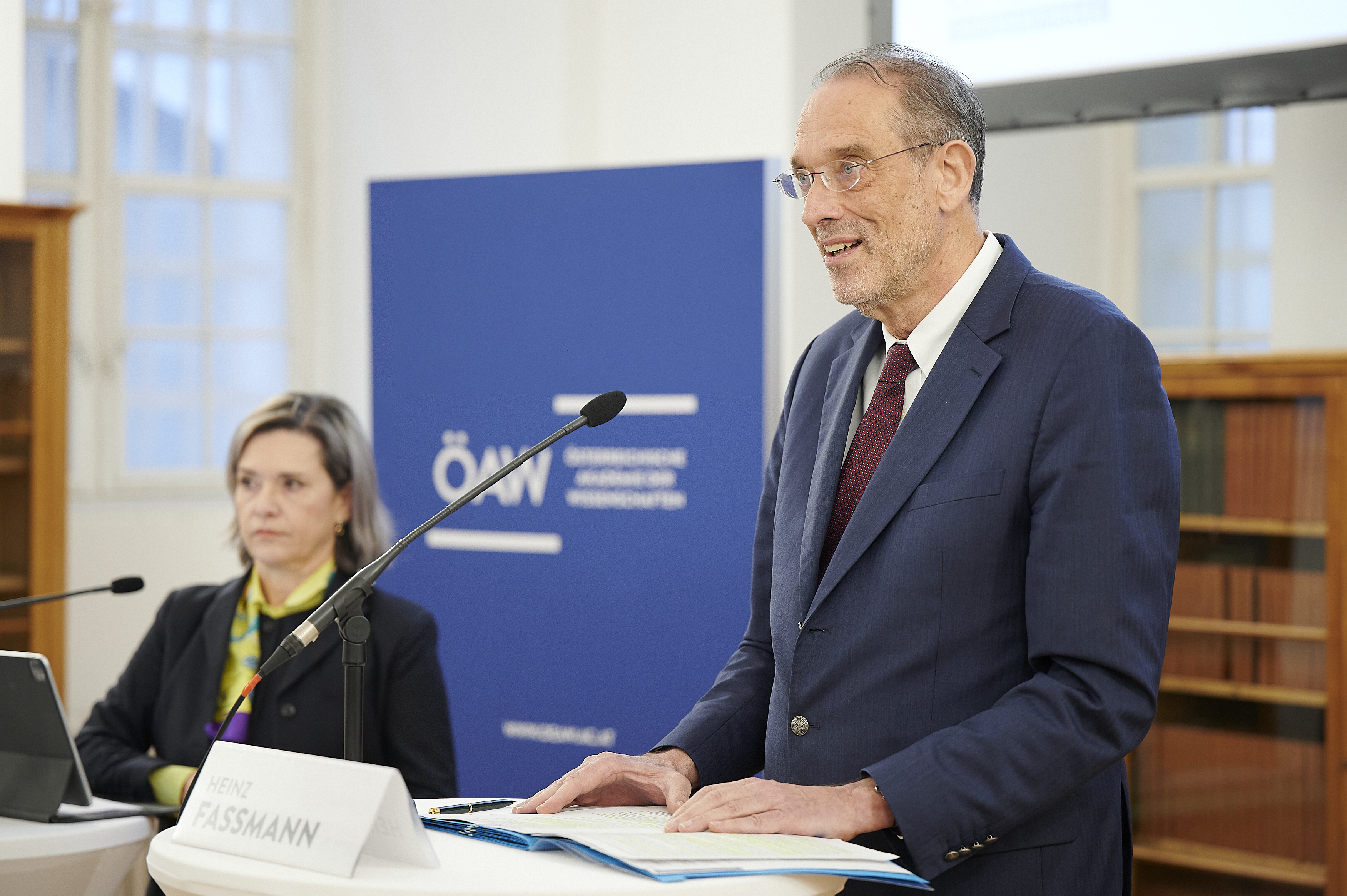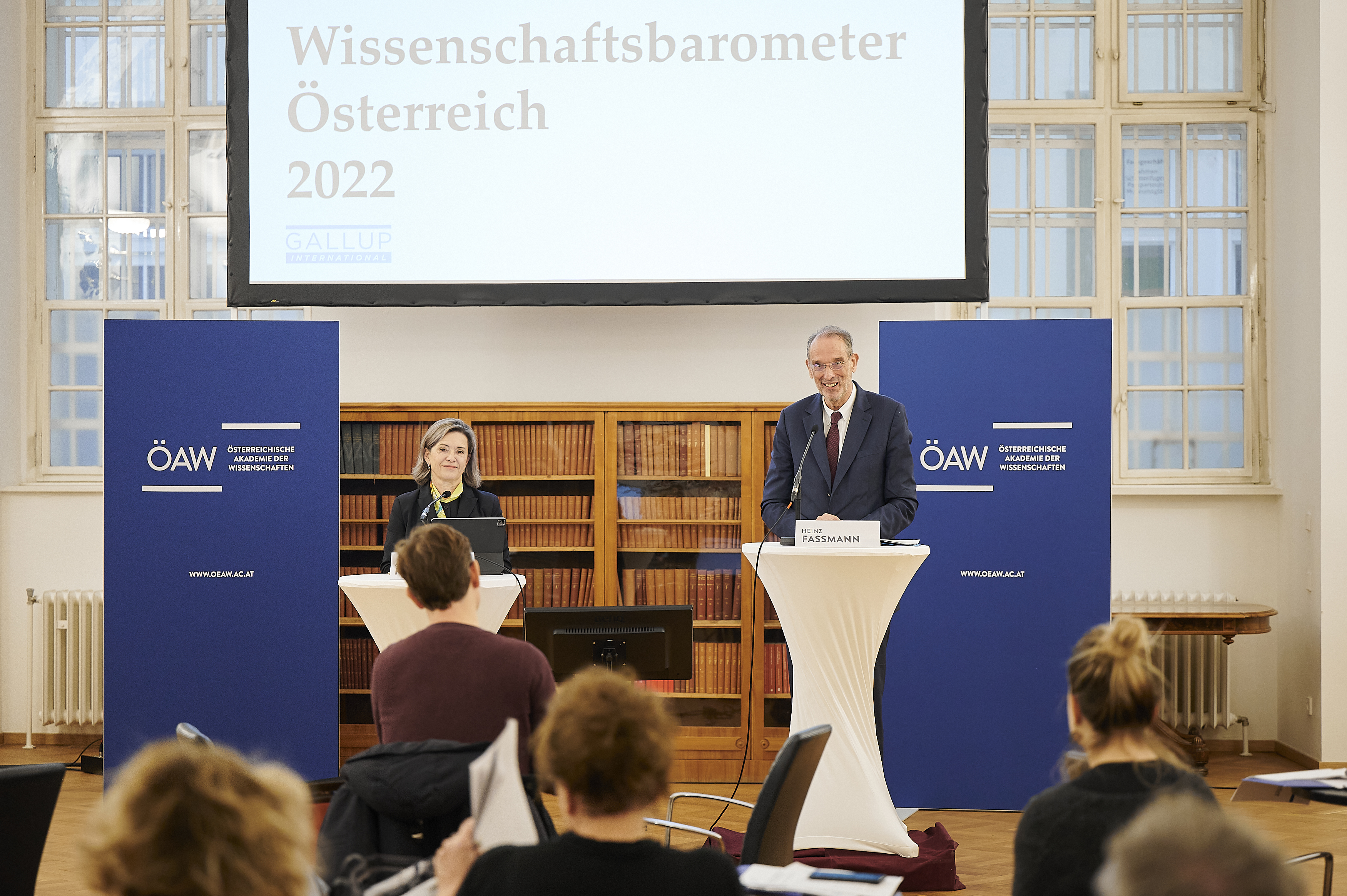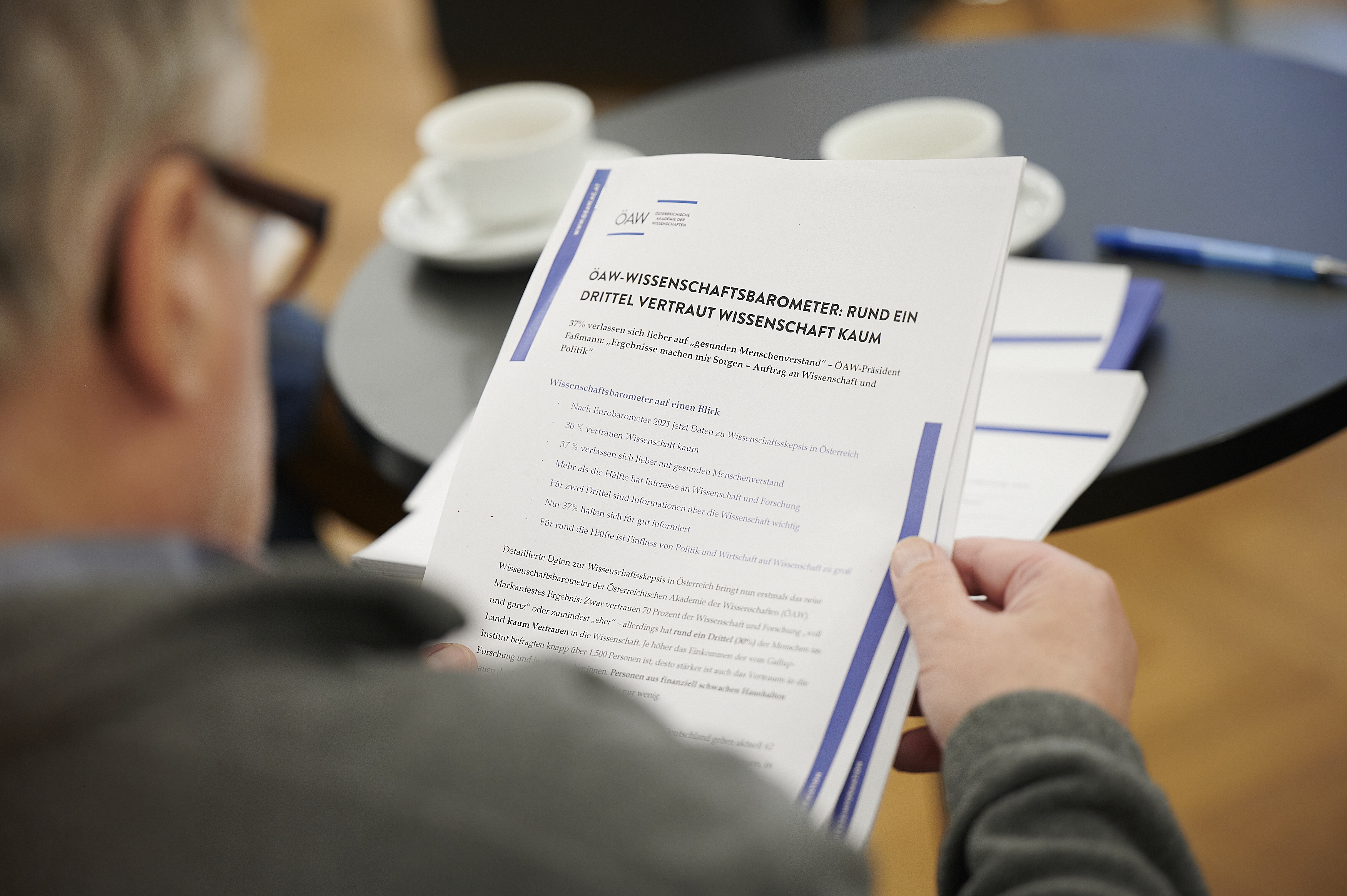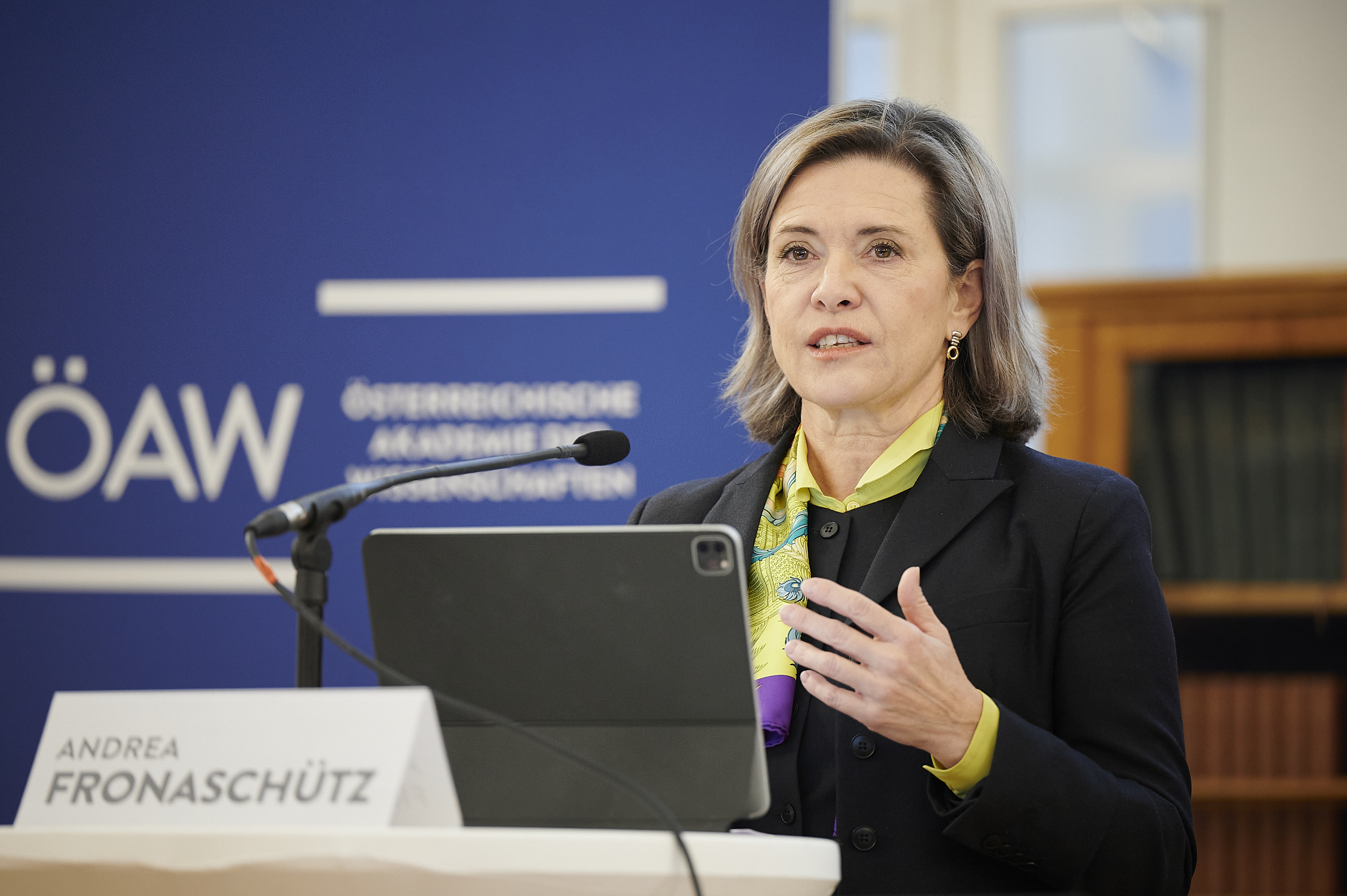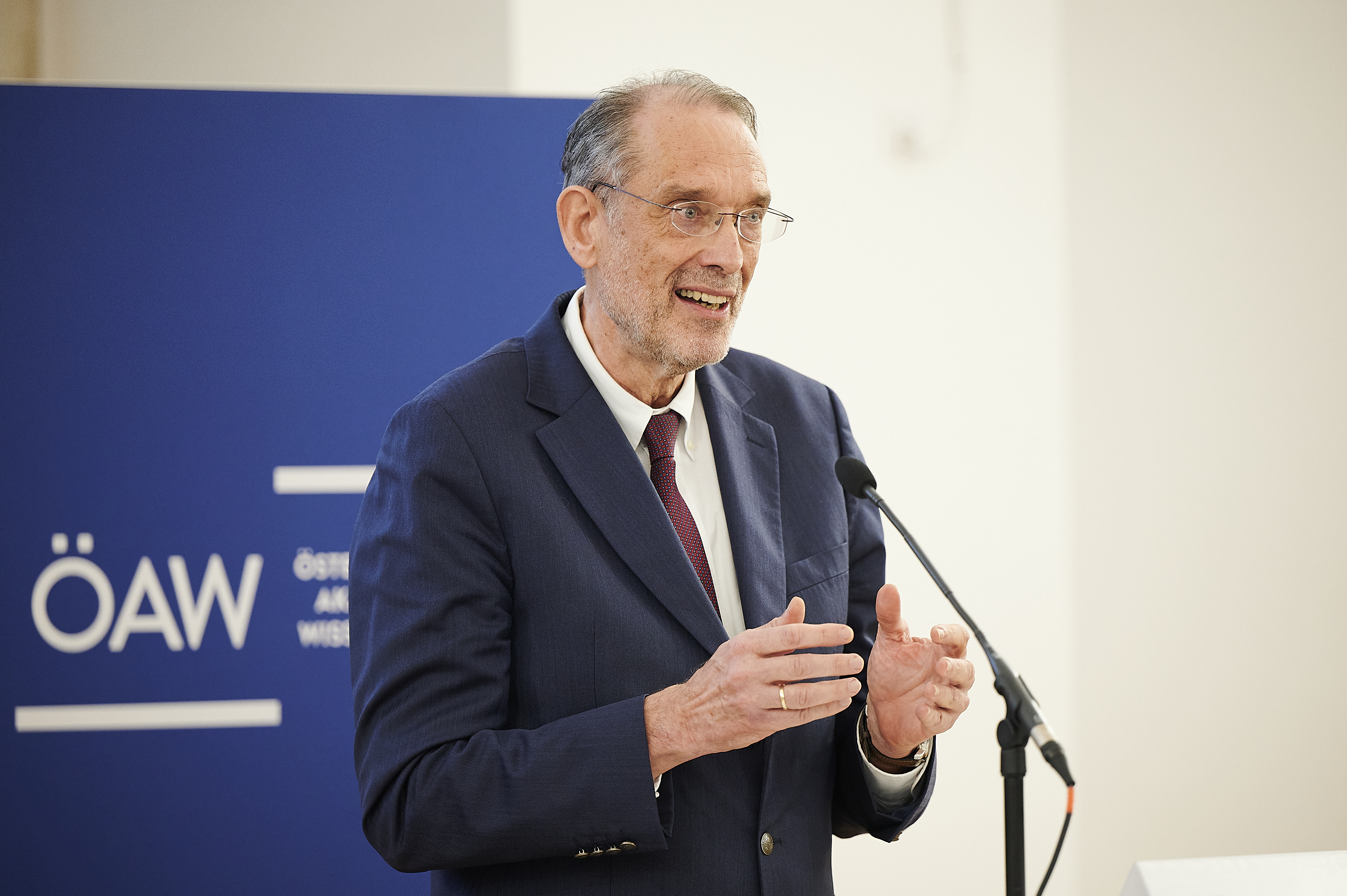For the first time, detailed data on science skepticism in Austria has been provided by the new Science Barometer of the Austrian Academy of Sciences (OeAW). The most striking result: Although 70% trust science and research “completely” or at least “rather”, around a third (30%) of people in the country have little trust in science. The higher the income of the 1,500 people surveyed by the Gallup Institute, the greater the trust in research and in researchers. 60% of people from low-income households have little or no trust in science.
The situation in neighboring countries is no better. In Germany, 62% state that they “rather” or “completely” trust science and research, in Switzerland it is only 59% who trust “strongly or very strongly”.
OeAW President Heinz Faßmann says: “With the OeAW Science Barometer, meaningful data on science skepticism in Austria are now available for the first time. The current results worry me. Almost half of people on low incomes and around a third with little formal education do not trust science, but skepticism is also spreading among high-income earners with a high school education. The authority of our word is no longer sufficient – more than ever before, we must explain, communicate and persuade. I see this as an urgent mandate for politics and for science itself. I am also glad that Minister Polaschek attaches the utmost importance to this topic.”
INTERESTED BUT POORLY INFORMED
The other results: More than half of those surveyed in the country state that they are interested in science and research. However, only a quarter of the Austrian population is very interested. Again, in a country comparison, Austria is at a similar level with Germany, while in Switzerland only 17% of those surveyed expressed a strong interest in science.
But how important is it for people in Austria that they are informed about scientific topics? Although two-thirds of the population emphasize that this is very important, only 44% specifically look for relevant information. Accordingly, the proportion of those who consider themselves well informed is only 37%. The Internet – and above all Wikipedia and YouTube – is by far the most important source for science and research, followed by ORF, daily print newspapers and other TV stations. Radio stations other than those of the ORF rarely lead to contact with scientific topics.
SCIENCE VERSUS COMMON SENSE
Although not a majority opinion, the Science Barometer revealed significant agreement with statements of science skepticism. About a third of those surveyed believe that scientific experts are “in league with politics and business”. Just as many think that when in doubt, one should trust the "life experience of ordinary people" more than the assessments of scientists. The view that one should rely more on “common sense” than on scientific studies is even more widespread at 37%.
Scientific literacy, i.e., the natural science-related knowledge of the population, shows interesting details. Only 52% confirmed the statement that electrons are smaller than atoms and 28% incorrectly believe that antibiotics can kill viruses as well as bacteria. Only continental drift was evaluated correctly by over 90%.
WHO INFLUENCES WHO?
If you take a closer look at the relationship between science and politics, the supposed influence of politics and business on science is rated as significantly greater than vice versa. 56% see too much influence of politics, 44% too much influence of business on science. Only about 20% see it the other way around.
WHAT CAN BE DONE? MEASURES AGAINST SCIENCE SKEPTICISM
To gather measures against science skepticism, the OeAW is organizing a round table with non-university research institutions. The Academy is also planning other target group-specific programs for communicating science, including for 10- to 14-year-olds. Finally, the scientists themselves should be better empowered to communicate their work. For this purpose, the OeAW recently started media and communication training.
The Science Barometer Austria was carried out in November 2022, along the lines of the Science Barometers in Germany and Switzerland, following the Eurobarometer survey of 2021. The OeAW plans to collect the data annually in the future.
